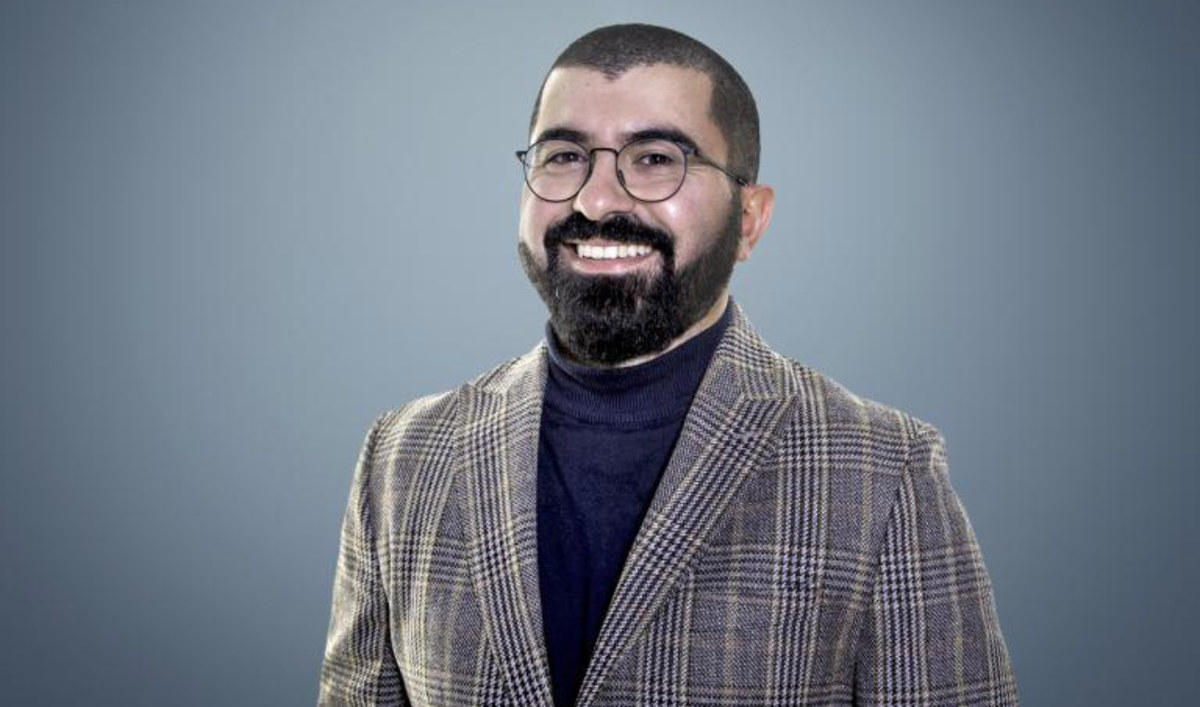DUBAI: Applications are being accepted for the second round of the CNN Academy Abu Dhabi journalism training program, which will begin in September.
The inaugural program, which began in January 2021, offered a full-time, five-week course featuring a combination of online learning and in-person workshops at CNN’s offices at twofour54 in Abu Dhabi.
Now it once again is offering a hybrid, intensive training program that includes workshops, this time at Yas Creative Hub, along with online webinars presented by senior CNN journalists, content creators and production specialists who will share the organization’s best practices in news gathering, verification of sources and content production for its various platforms.
“Participants in this year’s CNN Academy Abu Dhabi will go through a very clear student-learning journey,” Alireza Hajihosseini, the director of CNN Academy, told Arab News.
The class size has been expanded to accommodate 25 students, he added, and the number in-person activities and events have also increased.
During the initial stages, the participants will complete 10 courses covering core topics such as ethics in journalism, writing for TV news, and mobile storytelling and editing. They will also have the opportunity to attend the Global Media Congress alongside delegates from CNN.

Alireza Hajihosseini, the director of CNN Academy. (Supplied)
CNN Academy “wants to empower the next generation of global journalists,” which means equipping participants with the tools “they need to succeed in a digital-first news ecosystem,” said Hajihosseini.
“Among the most important of those skills is the ability to gather and verify news via social media,” he added. “To do this effectively, you must combine traditional journalism skills with digital technology.”
With this in mind, the program includes courses on mobile storytelling and multiplatform storytelling. “We are living in a golden age of content production, where more people have access to a wider array of tools to tell the stories they want,” Hajihosseini said. “Most of us have smartphones, which have effectively removed the barriers to the production and dissemination of content.”
The mobile storytelling course will teach participants how to film and edit engaging content using a smartphone, which is especially useful when producing stories for social media, or for field reporting during a breaking news event, he added.
“Online formats provide a huge range of opportunities and affordances to storytellers, so journalists need to understand the tools they have at their disposal to present their work,” said Hajihosseini.
The multiplatform storytelling class, he added, will consider questions such as: What are the foremost considerations for writers to ensure that users engage with their content? And how do you structure and design new digital platforms, such as newsletters?
During the final week of the program, the participants will take part in the first CNN Academy Newsroom Simulation at Yas Creative Hub, which has been designed in consultation with CNN journalists from around the world and Professor Rex Brynen from McGill University in Montreal, Canada.
This competitive challenge will require participants to investigate and report on a fictional breaking news story that puts their journalism skills to the test in a realistic, fast-paced setting. Each element of the scenario has been tailored to reinforce the journalistic best practices they have learned in conjunction with the broader CNN Academy curriculum.
“It is a week-long event where participants will work in teams to get to the bottom of a fast-developing story with multiple characters and sources,” said Hajihosseini.
The simulation will also include a specially developed, artificial social media platform “that will introduce challenges such as how to filter out the noise and avoid going down rabbit holes of misinformation,” he added.
At the end of the challenge, participants will produce video reports that will be judged by a panel of experienced CNN staff.
Several graduates of the first CNN Academy Abu Dhabi have gone on to establish a career in the media, including five who worked for CNN through paid internships, fixed-term positions or full-time roles.

Mohammed Abdelbary. (Supplied)
Mohammed Abdelbary, for example, took part in the academy last year and subsequently joined CNN Abu Dhabi as an associate producer on the show “Connect the World with Becky Anderson.”
“CNN Academy opened my eyes to the type of journalist I could be,” he told Arab News.
He came from a marketing background, with no academic or work experience in journalism, and said he found the program unique in that “it was made for anyone and everyone to experience. The program positions itself for storytellers, not just journalists.”
He added: “I started the program with no experience in the world of journalism but came out with the tools to get my foot in the door. I can honestly say CNN Academy fast-tracked my career by at least two to three years.”
Applications for CNN Academy Abu Dhabi are being accepted now and must be submitted by July 15. It is is open to UAE nationals and residents over the age of 21 who have a background and/or interest in media and multiplatform storytelling.



























